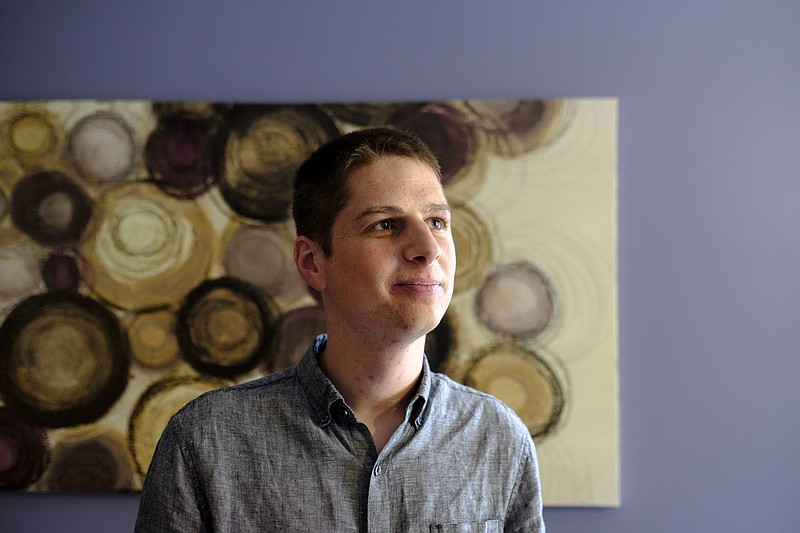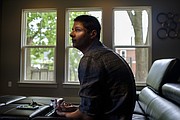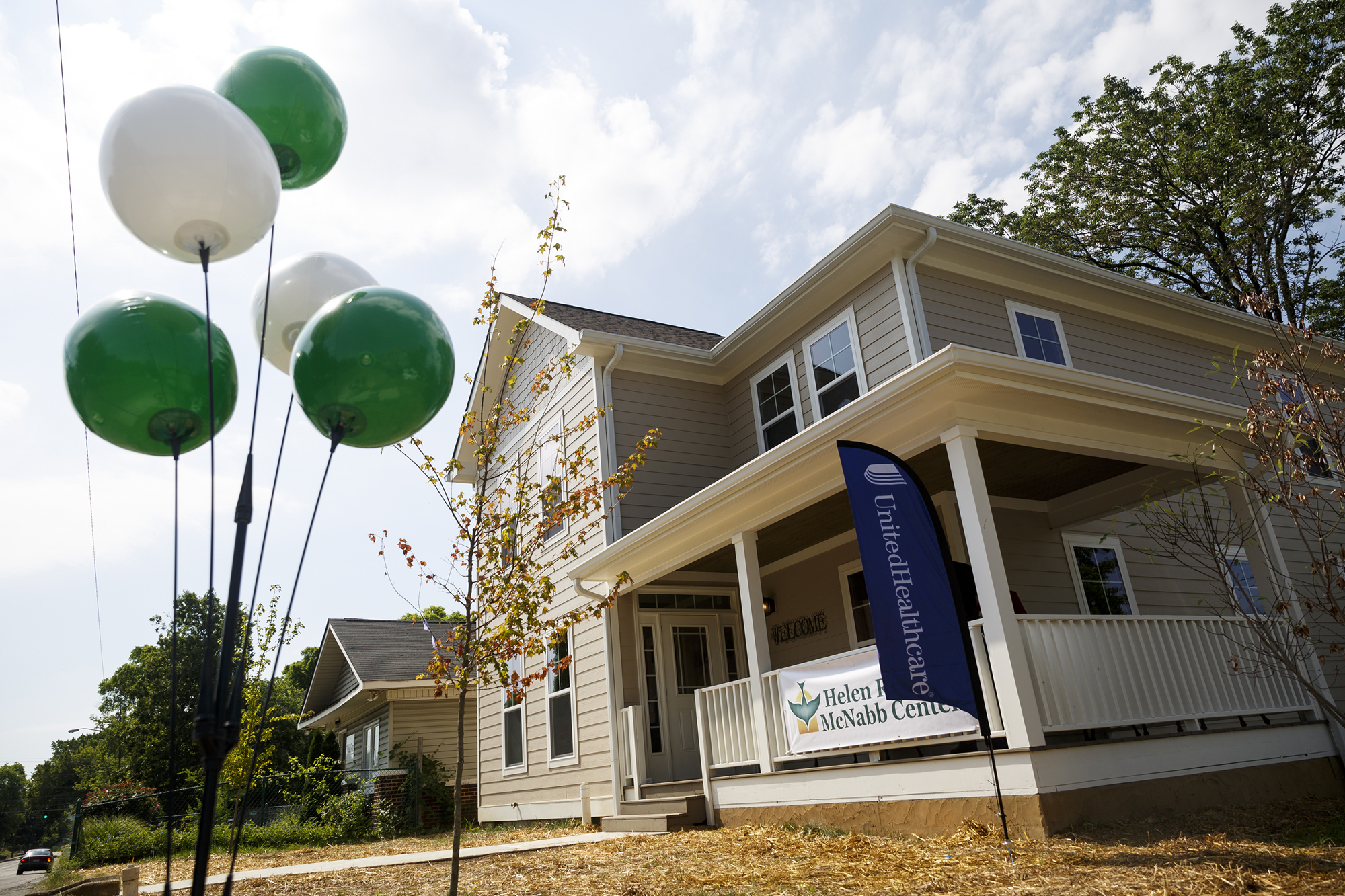Cody Rhea is one of the lucky ones.
He had been abused by his stepdad, he said, and had moved in with his grandmother, but he was clinically depressed.
He ended up at Parkridge Valley's adult mental health campus, but fortunately they transferred him to the Mitchell Home, a supportive living facility run by the Helen Ross McNabb Center for people with mental illness.
That was a big help in overcoming his depression, Rhea, 24, said Tuesday.
"I've done laundry, made my bed, brushed my teeth, helped cook and wash dishes," he said. He's helping his grandmother with chores, "and I've been talking more and that's good."
Rhea is hoping to do more. He is waiting to get his van driver's license so he can operate the van that picks up residents at McNabb's group homes and takes them to The Lighthouse, a peer support center where people with mental illness can learn social skills and engage in group activities.
He is hoping to get his own place some day and find a job helping people.
Rhea's success in coping with his mental illness shows what can happen when the right resources are available, local mental health workers said. But those resources are not always available.
Too many patients end up stuck at Moccasin Bend, the state's 150-bed mental hospital, said Mark Dickson, housing services coordinator for McNabb.
"They may put in for a bed, but it could be years. And before they find one, Moccasin Bend may have to discharge them and they end up on the streets," Dickson said.
McNabb took a step toward alleviating that shortage this week, formally opening a new supportive living facility, the Bailey Home, on Bailey Avenue just down the street from The Lighthouse.
Chattanooga Mayor Andy Berke was on hand for the ceremony, along with state Sens. Bo Watson and Todd Gardenhire and state Rep. JoAnn Favors, as well as representatives from McNabb and UnitedHealthcare, which funded the construction cost.
Ten people will live in the co-ed facility. The goal is to provide housing for people with severe mental illnesses who are able to live independently but need assistance on occasion. A Bailey Home resident may also have a medical problem, such as diabetes, for example, that they may have difficulty managing by themselves.
UnitedHealthcare's Community Plan for Tennessee made a $341,000 donation to the McNabb Center to fund construction of the home, which includes five bedrooms, three bathrooms, a spacious living room, a large kitchen with two refrigerators, and an office for staffers with windows looking into the living room.
The goal of the Bailey Home is to provide a permanent residence for someone with mental illness, said Gregory Fisher, director of Community Outreach for UHC's Community Plan, although if they learn more independent living skills they may move out into their own place eventually.
A McNabb staffer will be at the home 24/7 and a team leader will work at the facility Monday-Friday.
All of the residents will move to Bailey from a larger institutional setting, so teaching them to live with a roommate is part of learning life skills.
"Any time you have two people living in the same room, they will bicker," McNabb's Dickson said. "When you add psychosis to that, or if one roommate is paranoid and believes people are doing things to him in his sleep - you have to do a lot of grounding, telling people, 'You're OK here.'"
The Bailey Home is one of three such homes UHC's Community Plan has built in Tennessee, according to Chief Operating Officer Ute Strand, as part of a $1 million grant from its parent company, UnitedHealthcare.
But more are needed, Dickson said. McNabb, which merged two years ago with the Fortwood Center, operates five homes with a total of 46 beds, including the Bailey Home. The Joe Johnson Mental Health Center has a similar residential program.
The Tennessee Department of Mental Health and Substance Abuse estimates nearly 190,000 people in Tennessee with mental illness need some sort of housing assistance.
"Supportive living is definitely a need, but housing at all levels remains a difficult proposition, even with all the emphasis placed on homelessness in our community," Dickson said. "The number of folks that are living on the streets, even in Chattanooga, is extraordinary."
State mental health officials also are trying new approaches.
McNabb recently received a grant for a program to work with patients in facilities such as Moccasin Bend to help them find their own housing and live independently. Counselors will coordinate housing, Social Security benefits, TennCare benefits and outpatient treatment to help patients live on their own.
"If we could cut down on hospital visits by half, it would be a big improvement," Dickson said.
Contact staff writer Steve Johnson at 423-757-6673, sjohnson@times freepress.com, on Twitter @stevejohnsonTFP, or on Facebook, www.facebook.com/noogahealth.


